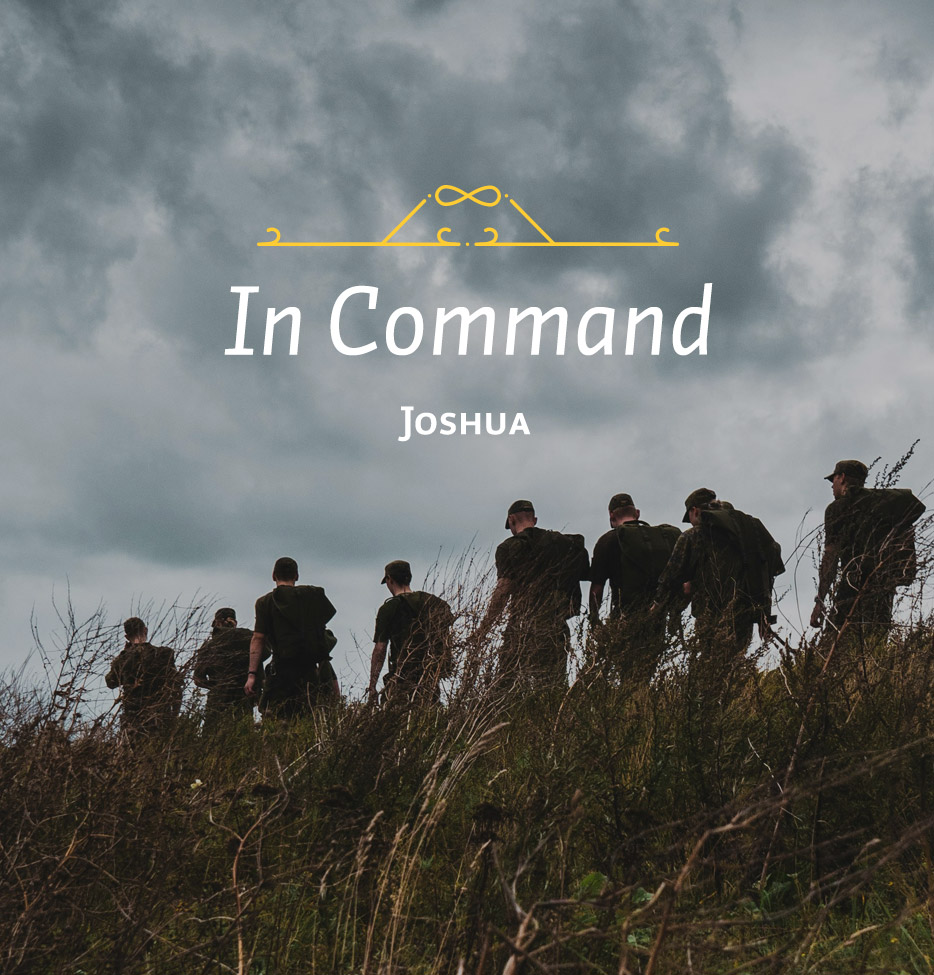The third thing that is impressive about the early life in the faithful past of Joshua concerns the earlier incident where Moses sent the spies into the Promised Land. There were twelve of them on that occasion. They went in, and their job was to search out the land from north to south and from east to west—from Dan to Beersheba, and from the Jordan River to the Mediterranean. They were to search out the kinds of people who lived there in the cities to bring a report. They went all through the land, and then they came back and could tell where all the tribes were and what the people were like. The twelve spies agreed on what they saw and said, “It is indeed a marvelous land flowing with milk and honey. It is exactly the way the Lord said.” They even brought back some of the produce of the land.
But that’s where the agreement between the spies ended. Ten of the spies said, “But you ought to see the people. Oh, they’re big. Why, some of them are giants. We stood there looking up at these giants and we felt like grasshoppers in our own eyes. And that’s the same way we looked to them.” But these spies also said, “Besides that, there are walled cities, and these people are too strong for us. There’s no way we can overpower that land.”
But the two other spies, Joshua and his friend, Caleb, saw things differently. They agreed that the land is great and that it is true that there are giants with walled cities. But they said, “Think what a victory it’s going to be when God knocks down those giants and destroys those cities.
We can surely take it.” What was the difference? Well, the difference was that the ten spies had their eyes on the giants, and they forgot God. While the two spies, Joshua and Caleb, who were faithful men of God, had their eyes on God. So when they saw God, the giants became as grasshoppers. They said that God can surely give them the land, and He will do it.
Now, we know what happened. The people of Israel did what people generally do: they lacked faith. And the result was that they followed the majority report. They reasoned, “Well, if ten spies think we can’t do it and only two think we can, the ten must be right. We can’t do it.” And so they decided, “Well, we won’t go in.” But we also know that God judged them for their unbelief. And they spent the next 38 years wandering in the wilderness until every one of that generation—that is, everybody 20 years of age or older—had died. And it wasn’t until 40 years after they had left Egypt with an entirely new generation that the people of Israel finally stood again on the banks of the Jordan about to go in and possess the land, as we find them here in the first chapter of Joshua.
But Joshua was faithful, and he learned great lessons at that point. He learned that the majority are not always right, and he knew that God can do anything. And I am sure he also learned the tragic end of unbelief. And from all this he became stronger as a result.
There’s one more incident in his past that’s worth mentioning: his commissioning by Moses, which is told in Numbers 27:18-23. There are echoes of it throughout the end of Numbers and also in the book of Deuteronomy. God told Moses that he was to have Joshua commissioned. It was to be done by Eleazar the priest, and it was to be a formal ceremony. Everybody was to see and know that Joshua was the man who had been chosen to succeed Moses. The thing I find interesting about this ceremony is that I sense this must have happened some time, perhaps years, before Moses actually died and Joshua finally received command. And yet, during that interim we find not the slightest intimation whatsoever that Joshua behaved himself unseemly.
For many in a situation like that, you know what a temptation it would be for a man in that kind of position to boast that he is Moses’ successor, or to try to speed up the transition. One might say to the people, “After all, Moses is getting old. It’s about time you started listening to me. Don’t go to Moses anymore. Come to me, I’ll take care of things.” But there was none of that in the life of Joshua. Joshua was a servant before he became a master. He was a man who knew how to obey before he was placed in a position where he could give orders. That was Joshua’s past.
So because we’re talking about leadership, if you look for the ingredients in the life of a person who really produces what we desire when we think of Christian leadership, the first of all those ingredients is a faithful past. It’s why in the New Testament, we are told when we elect officers not be pick novices—that is, new Christians—but to pick those who’ve already demonstrated some faithfulness in the things of God.






